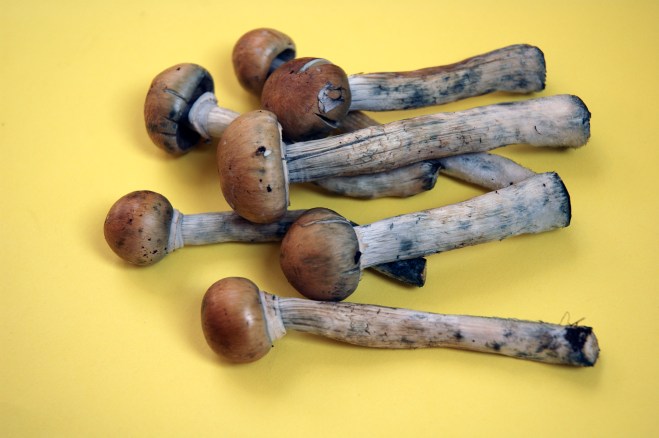Greg Miller reports from the third annual Psychedelic Science meeting in Oakland, California:
[Brazilian neuroscientist Dráulio Barros de Araújo and his team] found that ayahuasca reduces neural activity in something called the default mode network, an web of interconnected brain regions that fire up whenever people aren’t focused on any specific task. It’s active when people daydream or let their minds wander, for example. The default mode network has been a hot topic in neuroscience in recent years. Scientists don’t really know what it does, but they love to speculate. One interpretation is that activity in this network may represent what we experience as our internal monologue and may help generate our sense of self.
Last year, British scientists reported that psilocybin, the active ingredient in magic mushrooms, like ayahuasca, reduces activity in the brain’s default mode network. The researchers proposed that interfering with the default network could be how psychedelic drugs cause what users often describe as a disintegration of the self, or even a sense of oneness with the universe.
That effect, compounded with “a growing sense of frustration over the lack of promising new psychiatric drugs in the pipeline,” had attendees intrigued:
Several scientists at the conference pointed to findings that activity in the brain’s default mode network is elevated in people with depression. Because psilocybin and ayahuasca seem to dampen activity in this network, perhaps they could help. It’s hard to connect those dots without a strong dose of speculation, but one idea is that the elevated activity in the default mode network reflects too much attention directed inward. People in the grips of depression, the thinking goes, are trapped in an endless cycle of critical self-examination, and a little neural desynchronization might help them reboot.
But it’s ever-so-hard to bring science to bear on these promising compounds when they are still fucking illegal. In Britain’s case, mushrooms with psilocybin were only banned eight years ago. Instead of examining the properties that could help humans, we have decided to ban them because they might cause someone somewhere a modicum of pleasure and even peace.
(Photo: Fresh Colombian magic mushrooms legally on sale in Camden market London June 2005 before such sales became a crime. By Photofusion/Universal Images Group via Getty Images.)
